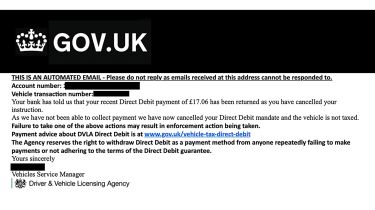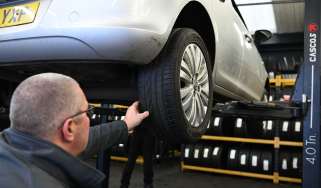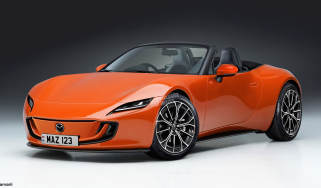Warning: scam emails, texts and calls targeting motorists rise 600%
The Driver and Vehicle Licensing Agency has released images of common scam emails, as fraud reports skyrocket 600 per cent
The Driver and Vehicle Licensing Agency (DVLA) has seen a six-fold increase in scam reports. Between July and September 2020, the DVLA received 603 per cent more reports of fraudulent emails, texts and phone calls than it did in the same period last year.
There were 3,807 reports of email scams alone - up 531 per cent from the 603 reported in the three months to September 2019. Reports of fraudulent texts, though, decreased from a 653 between July and September 2019 to 510 in the same period this year.
These fraudulent messages can ask drivers to verify their driving licence details, offer vehicle tax refunds, or highlight a failed vehicle tax payment and ask for bank details.
The DVLA has now released images of some of the most commonly reported fraudulent emails, allowing drivers to familiarise themselves with them and avoid them.
How to protect yourself against the scammers
Drivers are reminded that the only place they can access official information on the DVLA and its services is the GOV.UK website. The DVLA never asks for bank details over email and never sends text messages about vehicle tax refunds.
The DVLA also tells motorists to never share driving licence images and vehicle documents online, never share bank details or personal data online, avoid websites offering to connect to DVLA’s contact centre and only use GOV.UK when looking for DVLA contact details.
Suspicious emails and texts should be reported to the National Cyber Security Centre. You can also forward a questionable text message to your mobile network provider on 7726. Furthermore, anyone who thinks they may have been a victim of fraud should immediately contact the police via Action Fraud.
Phil Morgan, head of fraud policy investigation at the DVLA, said: “These new figures demonstrate that scammers are becoming more persistent in their efforts to target motorists.
“These more recent scams may at first seem legitimate, however they are designed to trick motorists into providing their personal details. We never ask for bank or credit card details via text message or email, so if you receive something like this, it’s a scam.”
Have you received a fake email from the DVLA? Let us know about it in the comments section...
Find a car with the experts





